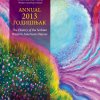The North American Society for Serbian Studies (NASSS) is an organizational member of the Association for Slavic, East European, and Eurasian Studies (ASEEES), formerly American Association for the Advancement of Slavic Studies (AAASS). It is dedicated to promoting and enhancing knowledge of Serbian culture and society throughout North America, including the American and Canadian academic community, as well as the Serbian diaspora at large. The goal of the organization is to foster and support scholarly interests and research in disciplines such as language, literature, art, music, history, anthropology, sociology and political science. NASSS membership is open to all, scholars and supporters, who share these interests and goals.
.The North American Society for Serbian Studies (NASSS) was founded in 1978 as a non-profit, scholarly organization. Its main objective is to promote research and advance knowledge of Serbian Studies and to increase public awareness and understanding of Serbia, its culture and people. The society reaches its constituents through publication of the journal Serbian Studies, organization of meetings, sponsorship of public events, and participation in conferences, such as the annual convention of the Association for Slavic, East European and Eureasian Studies (ASEEES). NASSS works closely with universities and cultural institutions in Serbia in order to facilitate sharing of scholarly information and exchange opportunities for scholars and students. The society also seeks to collaborate closely with scholars from around the world whose research focuses on Serbian studies.
Serbian Studies is the inter-disciplinary peer-reviewed journal of the North American Society for Serbian Studies, published biannually in the United States by Slavica Publishers. The journal is distributed to over one hundred eighty libraries in North America and abroad, and to the members of the Society. Current and previous issues are available from the publisher. The journal is in the process of digitalization.
In circulation since 1980, the journal invites scholarly articles on subjects pertaining to Serbian culture and society past and present, and across fields and disciplines. The journal also welcomes archival documents, source materials, and book reviews. Contributors to Serbian Studies include scholars affiliated with a broad range of institutions around the world, as well as those engaged in independent scholarship.




